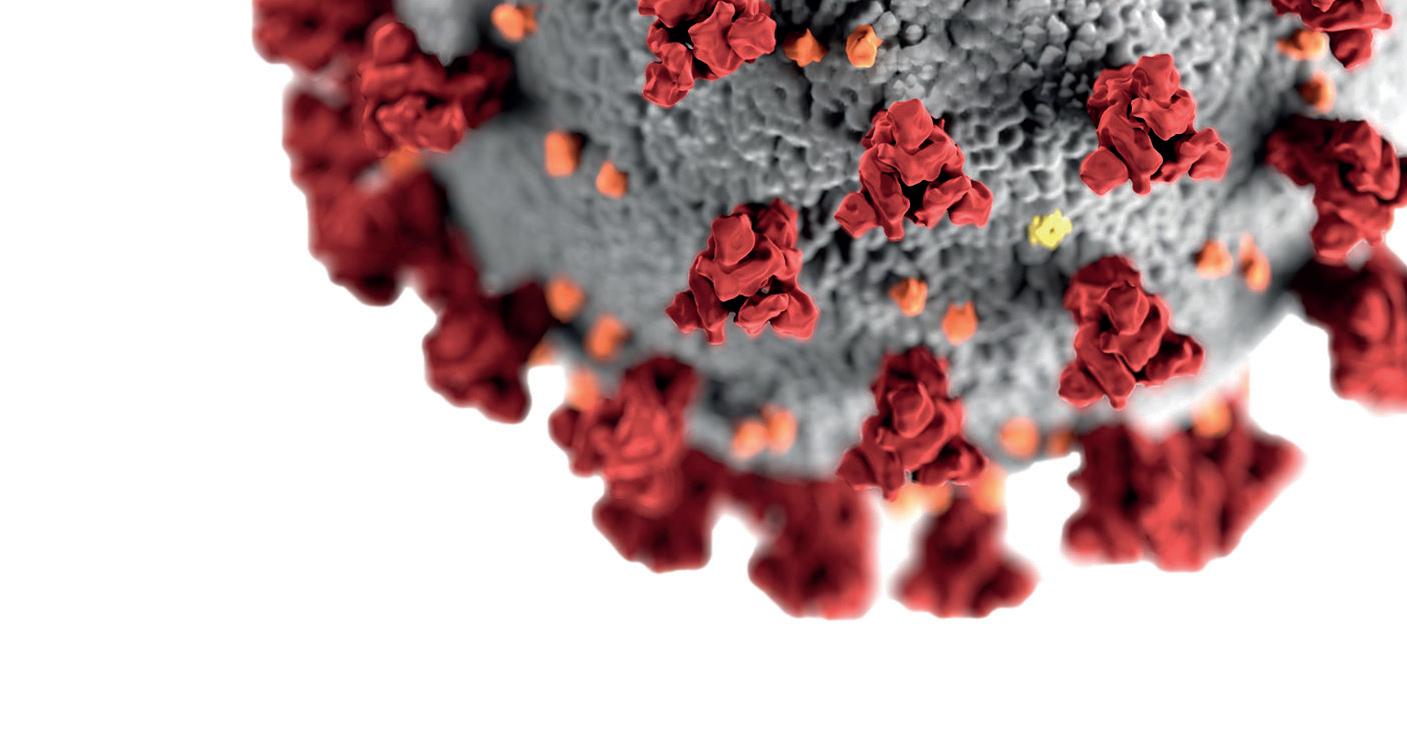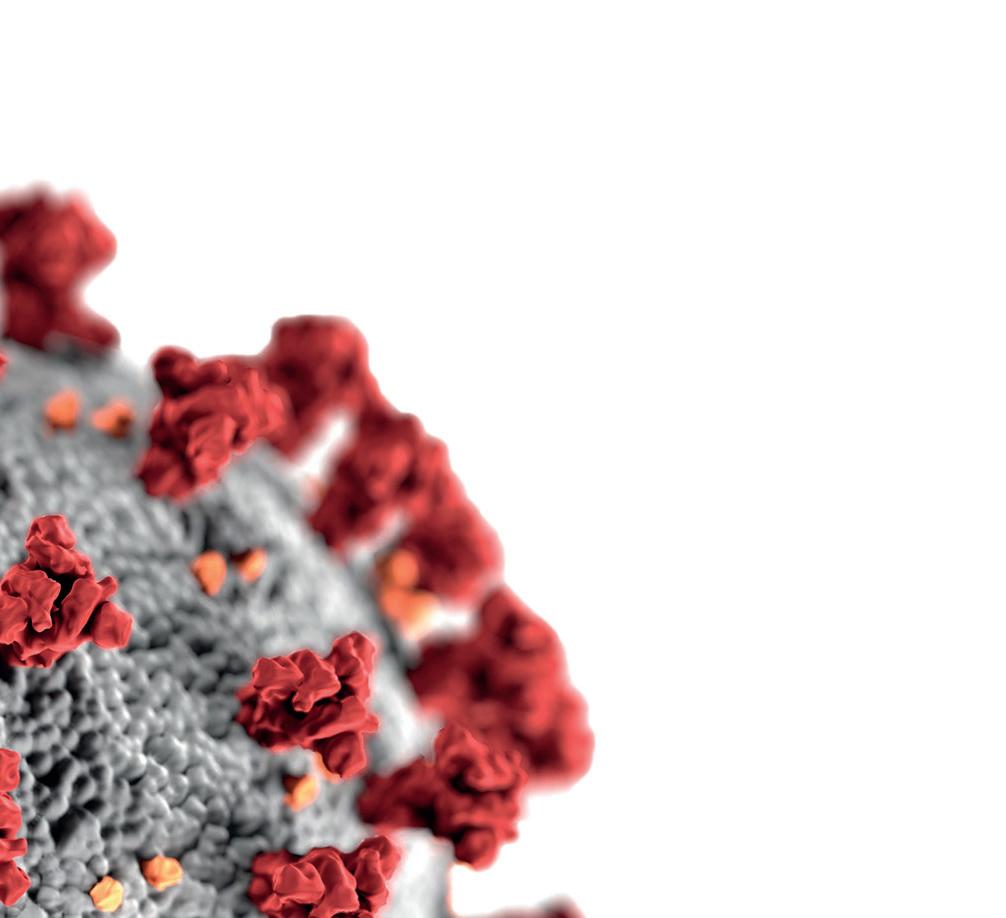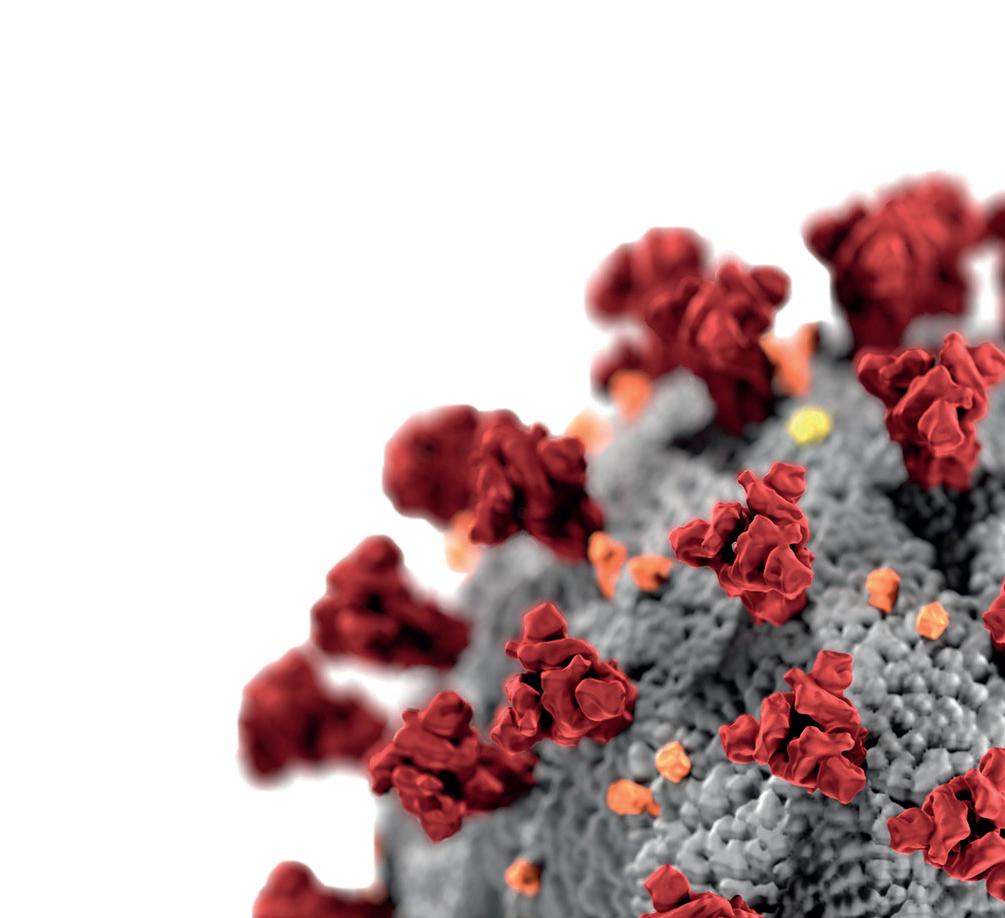
4 minute read
The Last Word on the ‘new normal’ from C21’s David Jenkinson
Ifiled this copy a week out from Content London, not really knowing what state the world would be in by the time the event came around. If it came around.
If you’re reading this, we made it through.
But we live in dangerous times. Years from now people will ask, ‘What did you do in the pandemic?’ in the same way we asked our parents and grandparents, ‘What did you do in the war?’
It was always possible our generation’s world war would be fought against an invisible enemy, which would arrive under cover and be more brutal than we could imagine. But the long-term consequences of this fight are perhaps more significant than any other.
Beyond the death and illness Covid-19 has caused to those who caught the virus is the impact it had on everything else. We’ve all had our lives and jobs turned upside down and been forced to be as resilient as possible to survive.
The pandemic also amplified broader issues, gave us time to think and magnified the very best and very worst of us, at a pivotal moment in history.
It happened in an age of anxiety. From the Black Lives Matter movement, diversity, sex and gender politics, the rise of populism, Brexit, war, famine and refugee crises to the climate emergency we all now face, the past few years have not been a walk in the park.
Throughout all of this, media and entertainment have reflected back the stories at the heart of every issue and bent and flexed to rationalise and explain ourselves to ourselves, with an increasingly surreal edge.
Within the content business we saw adaptation and evolution happen at rapid pace. Production stopped, restarted and stopped again. Archives and libraries filled schedules where new supply failed and audiences worked their way through Netflix, Amazon and all the VoD offerings of every content platform on the EPG.
So what happens next, and what lessons have we learned during the past 20 months that will inform the future?
The opportunity to reset will either be wasted or embraced within the next few years and the role the television business plays in that future may be vital.
What responsibility do those who commission and tell stories have to the bigger picture, and what could be achieved if all of the issues facing the world were addressed wherever and whenever possible? It’s a tricky balance. From an operations point of view, we have all probably changed for good, and the freedom to work remotely has brought about a more productive approach to work. It is unlikely that we will travel as much, so what does that mean for the traditional markets the climate and events that are scattered across the year and ast few years bring the community together? And if we’re not meeting so much in person, how does that alter nd the nature of the conversation and the in-person k the stories at creativity that spawns new ideas? and flexed to From a content perspective, what will to ourselves, audiences watch as we move into 2022 and beyond, and if the world continues its decline, e saw does the entertainment business simply at rapid serenade mankind as it sails towards oblivion, ed and or become a more active part of the solution? ries Content London is one of the first events y failed that is bringing people back together in person, hrough with all the challenges that entails. It is a offerings small step towards the new normal. It will be EPG. interesting to see how people reconnect this t lessons week and what the talking points will be. But 0 months as we all try our best to get back to normal it’s probably the case that ‘normal’ really doesn’t ther be wasted exist anymore, and what happens next is years and the anyone’s guess. We really can’t base the future in that future on the past. Elbow bump.
and events that are s bring the communit meeting so much in the nature of the con creativity that spaw
From a content pe audiences watch as w beyond, and if the w does the entertainm serenade mankind or become a more
Content London that is bringing peo with all the challe small step toward interesting to see week and what the as we all try our best probably the case th exist anymore, and w anyone’s guess. We r on the past.
Elbow bump.


Making the most of the new normal
As the content business takes its fi rst faltering steps towards something approaching normality, David Jenkinson asks what lessons have been learned during the pandemic and how they can be used to build back better.
DavidJenkinson David Jenkinson
”
Image: CDC
The offi cial Content London Daily magazine is published by C21 Media Ltd (www.c21media.net). Editorial director: Ed Waller. Reporters: Jonathan Webdale, Clive Whittingham, Nico Franks, Jordan Pinto, Karolina Kaminska, Michael Pickard, Gün Akyuz, Ruth Lawes, Oli Hammett. Chief sub editor: Gary Smitherman. Senior sub editor: John Winfi eld. Photographer: Simon Wilkinson. Production: Eleanore Hayes, Courtney Brewster. Events: Gemma Burt, Chloe Hocking. Content London Daily client contacts (C21Media): Odiri Iwuji, Peter Treacher, Hayley Salt. Editor-in-chief & managing director, C21Media: David Jenkinson. Meet the Content London Daily editorial team in the Horsfall Room (Kings Place) or via press@c21media.net. © C21Media 2021







